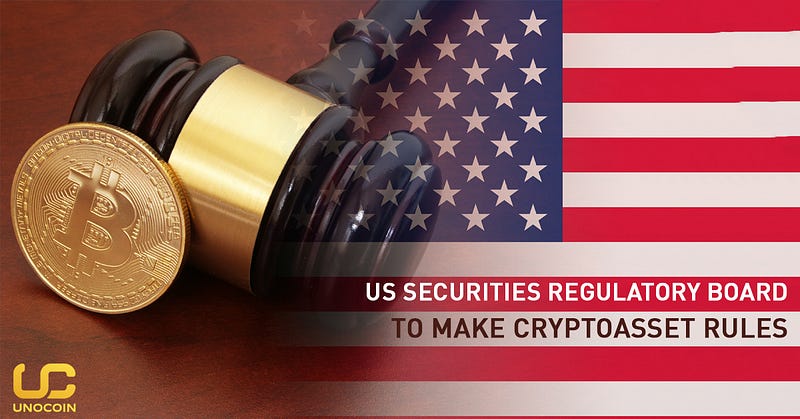
The US financial regulatory authority — the Security and Exchange Commission (SEC) — has been taking serious steps towards understanding and regulating the cryptoasset markets. They have been requesting information from the involved companies to understand the markets in detail.
As recently stated by SEC, they consider digital assets in the form of coins and token that are often sold through Initial Coin Offering. These can be considered “Security” in context of US law. This would make them binding under the US law to register with SEC and thus being regulated by them.
SEC is the regulatory authority for all national exchanges requiring them to register and abide by their guidelines which are made in order to protect the interest of investors. The presence of a regulatory body restores the faith of inventors in the market and keeps unregulated forces in check. Since cryptoassets are not regulated, there will not be any authority to look into grievances of investors. The integrity and information of digital platforms cannot be trusted and need to be regulated to allow secure transactions.
As recently stated by SEC Chairman Jay Clayton said “We are open to exploring with Congress, as well as with our federal and state colleagues, whether increased federal regulation of cryptoasset trading platforms is necessary or appropriate. We also are supportive of regulatory and policy efforts to bring clarity and fairness to this space.”
Currently, crypto exchanges are regulated as money-transmissions services, granted a license by individual states. These are currently not covered by SEC or US Commodity Futures Trading Commission (CFTC) as there is no clear distinction if bitcoins are securities, commodities or hybrids.
These are following ways in which these regulations can proceed:
1. Since no ICOs have registered with SEC the crypto-assets will not be regulated and make them less protected than stocks. This can lead to fraudulent transactions. Thus SEC will try to regulate ICOs as they can be treated as securities offerings.
2. The markets cross-national bordered and is not centrally located — Yet the intangible technology-based nature of crypto assets makes them difficult to trace to any particular country, and the money that goes toward purchasing these assets can easily move out of reach of U.S. regulators. Thus ICO enablers including accountant and lawyers who would be regulated thoroughly.
3. The SEC believes that crypto-based enterprises should work with the regulatory community to increase fairness and information transparency allowing investors to make informed decisions.
The chairman of SEC and CFTC — Clayton and Giancarlo acknowledge the limitations of cryptoasset regulations such as involvement of sanction countries like North Korea avoid sanctions by dealing in cryptoasset or high possibilities of these accounts being hacked and misused.
This is a difficult task as the inherited structure of blockchain technology is complicated to regulate. It is a decentralized system and supports no interference of government or a bank. The exchange takes place without any intermediate person and on a peer-to-peer basis. Bitcoin is not linked to any territory or financial institution and thus there is no central agency that can be shut down. The peer-to-peer network is hard to regulate and thus legal status is very hard to debate.
The blockchain is a public ledger which, if used effectively can actively bring down the cost of operating and regulating the finance industry. That can lead to more efficiency and transparency in the field of many financial applications. The decentralized approach of public ledger allows the public to cooperate in a distributed manner.
Also Read:
https://blog.unocoin.com/how-to-identify-the-next-bitcoin-in-terms-of-returns-6ab8d321c82e



